NEWS
24.08.2023
No Matter What Happens, You're Undefeatable! – Lyricist of "CHA-LA HEAD-CHA-LA" Yukinojo Mori's Outlook on Life
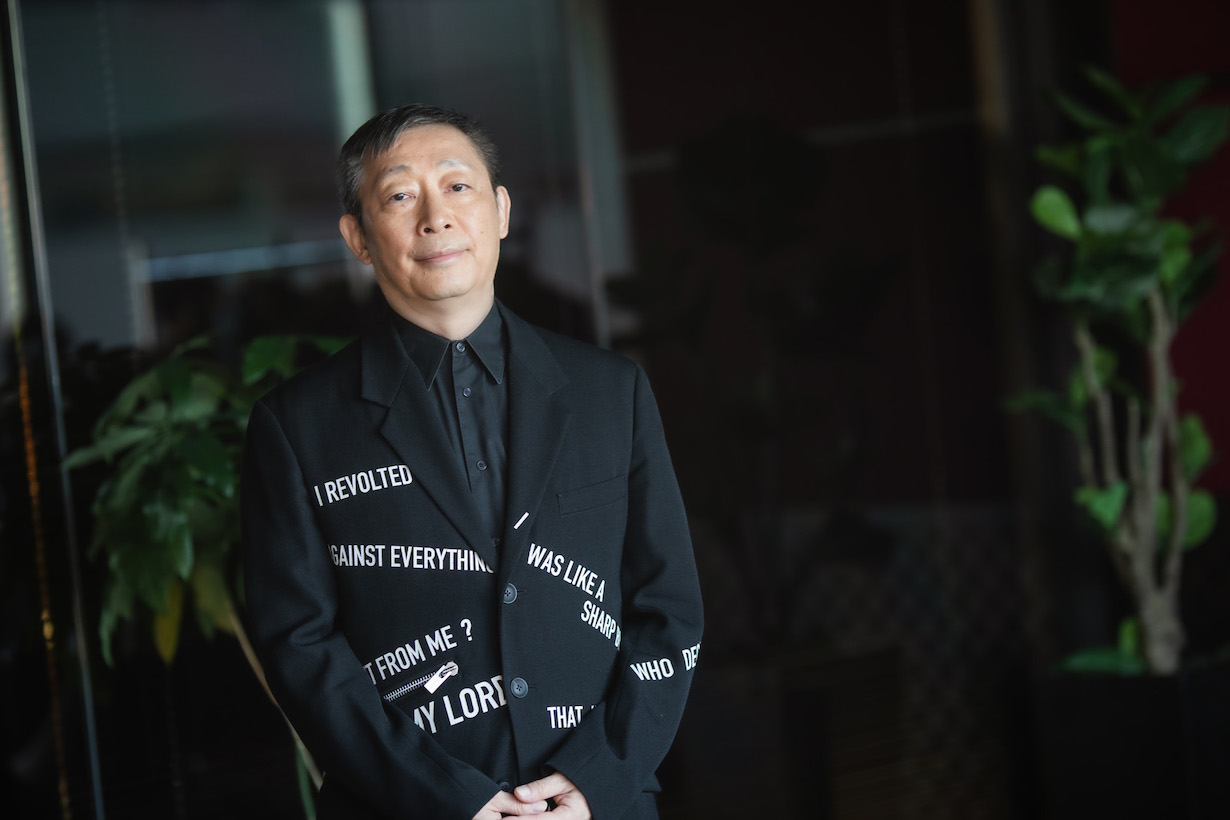
Many Dragon Ball fans think of "CHA-LA HEAD-CHA-LA" as the quintessential Dragon Ball Z theme song. It was penned by Yukinojo Mori, the man behind the lyrics of many of the greatest hits during the golden age of Dragon Ball Z, including "WE GOTTA POWER", "Bokutachi Wa Tenshi Datta", and more!
Yukinojo Mori skillfully fuses English and Japanese to create songs that utilize catchy melodies and great rhyming technique. He says that the source of his talent for lyrics is his "rocker soul" that he's nurtured from childhood.
How did his career path as a lyricist and composer lead him to Dragon Ball? How did the lyrics that shape the world of Dragon Ball come to be? In this interview, Yukinojo Mori answers all that and reveals the true meaning of "CHA-LA HEAD-CHA-LA".
The Name "Yukinojo" Came From My Love of David Bowie
—For starters, could you tell us how you ended up with a career in music? Is it true that you were once involved with the progressive rock band, Yonin Bayashi?
Yukinojo Mori (hereafter, Mori): I was in the same grade as the members of Yonin Bayashi. Even though we went to different high schools, we all lived relatively close to each other in Tokyo. At that time, there weren't too many people playing rock music, so the only way to make friends was to seek out people from other schools. I wasn't ever a member of Yonin Bayashi, but I've performed as a guest at their shows even after they became famous.
I think we were right in the heyday of prog rock*. Of course, The Beatles and the Rolling Stones were some of my favorites, but I was also influenced by glam rock** and prog bands from overseas like King Crimson and Pink Floyd.
*An abbreviation for the term "Progressive Rock". A genre of music known for pushing the boundaries of rock n' roll.
**A genre of rock music popular in the late 1970s. Originating in England, this particularly flamboyant genre is known for its androgenous style and flashy makeup.
—In particular, glam rock seems to have had a huge influence on you.
Mori: Yes, absolutely. When I was young, I was particularly influenced by David Bowie, who was the king of glam rock. Actually, I chose the name "Yukinojo" because of my love of David Bowie.
When David Bowie first came to Japan in 1973, I got to see him in concert at the Shibuya Public Hall (the prior name of Line Cube Shibuya). His performance was so amazingly cool to watch, especially live. He wore onstage outfits featuring his Japanese name "出火吐暴威" (which phonetically represents David Bowie's name in Japanese) personally inscribed by fashion designer Kansai Yamamoto. The Kuroko (stagehands that dress all in black) came and removed his clothes mid-performance. It was amazing that he didn't even stop for a costume change!
This theatrical performance style was something I had never seen in rock music before Bowie. I remember thinking to myself, "Rock is like Kabuki!" So, I took the Kabuki stage name "Yukinojo" as my own.
— Rock and Kabuki? What an unexpected combination!
Mori: That was the moment I realized I didn't want to just pursue playing cool music. I wanted to pursue performance, direction, and expression. In order to live up to the name Yukinojo, it became my responsibility to write performance-worthy lyrics.
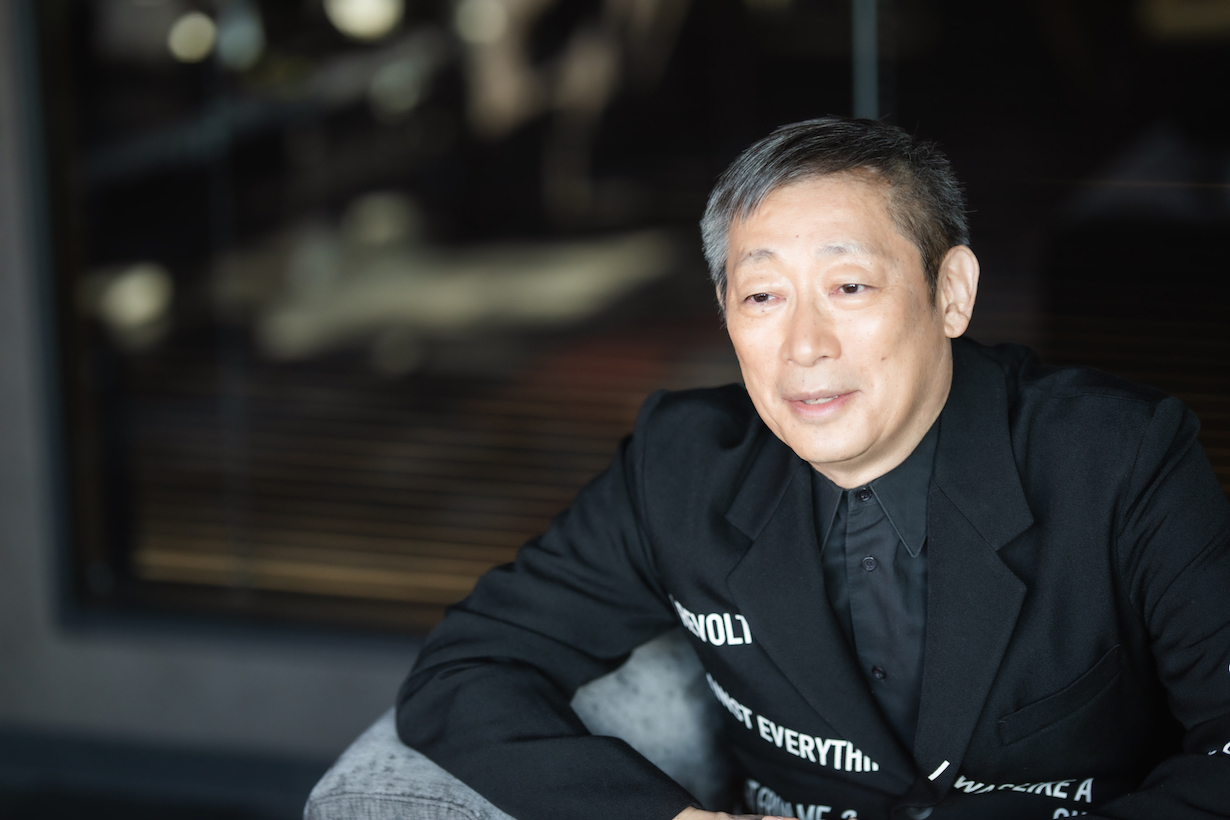
From Writing for The Drifters to Challenging the World of Anime Music
—You started out your career performing as a solo artist, right?
Mori: Yes, that's right. I wanted to be a singer-songwriter since I could play the guitar and the piano pretty well. Back then, I spent most of my days writing music and then submitting it to record companies.
That's when I was introduced to Nabe Productions (Watanabe Productions) by some of the people who worked for Yonin Bayashi and was hired to write songs for Nana Kinomi. But I was a young man at the time, so there was no way I could write such grown-up music for someone like Nana Kinomi. My songs were all completely rejected. (Laughs)
After that, someone at Nabe Productions suggested that I try my hand at writing some unique music, and that's ultimately how I got my chance to write a song for The Drifters. That was a big turning point for me, and I made my debut as a lyricist in 1976 with the song, "Dorifu No Bai No Bai No Bai."
—How did you get involved with anime music?
Mori: The first anime I worked with was the children's program "Manga Hajimete Monogatari , which aired on the Tokyo Broadcasting System from 1978-1984. After writing both the opening and ending theme songs for that, I started writing lots of different anime songs like the opening theme for the Kinnikuman anime, "Kinnikuman Go Fight!" (1983).
—Considering that you started in rock music, did you have any reservations about working on music for anime?
Mori: I didn't have any reservations at all. I was born during the era of TV taking over the world, so you could say I was one of those kids who was "raised" by TV. I remember watching a lot of live-action children's dramas, like "Maboroshi Tantei ", "Seven Color Mask", and "Kaiketsu Harimao".
Moreover, I've been watching "Tetsujin 28" (released as Gigantor in the west) and "Astro Boy" since they were still live action! My favorites of the early era of anime were "Ookami Shonen Ken" and "Shonen Ninja Kaze no Fujimaru". But young people probably have no clue what I'm talking about. (Laughs)
Just like kids watching Dragon Ball's anime, I fell in love with the opening themes. In my day it wasn't anime, but all us kids went crazy for the opening songs for children's dramas and sang all our favorites. Since I had such a similar experience myself, I had no problem with writing music for anime.
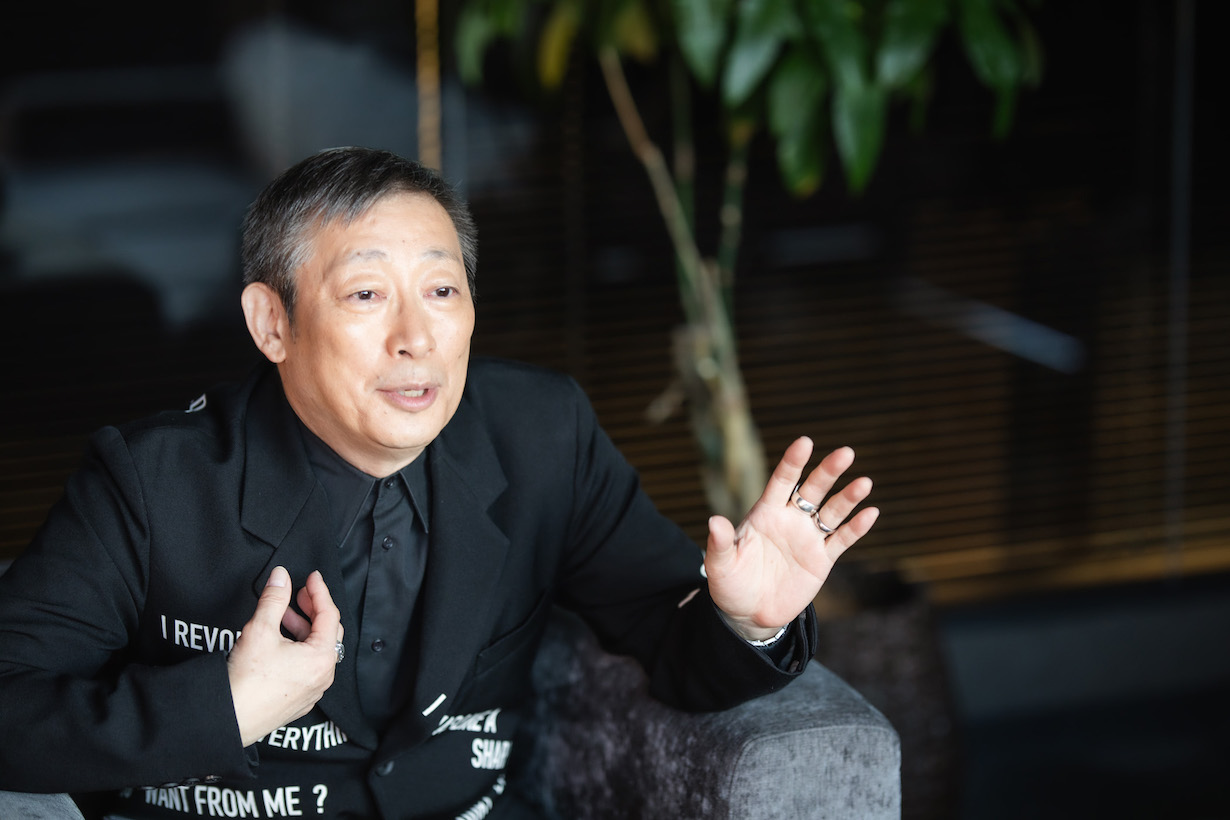
Writing Lyrics That Fit the Melody and Get You Pumped Up
—What is your lyric writing process? Your lyrics seem to have some similarities, like the anglicized pronunciation combined with Japanese wordplay, rhymes, and catchy lyrics that make you want to sing along.
Mori: For all music, not just anime, feeling the beat is the most important part in my opinion. If the lyrics don't match the beat, then it could become difficult for performers to sing. That can be a big problem.
In the past, lyrics were often written before the music was composed. Enka* and Kayokyoku** were often written this way. If I wrote the lyrics first, I felt that my music would have more of an old-fashioned feel to them. On the other hand, my generation often composed the melody and made a rock beat first, with rock being a brand-new genre back in my day. The challenge became adding Japanese that would match the beat.
*A genre of post-war Japanese ballad that mixes a more traditional vocal style with "Western" instrumentation.
**Lit. "Popular Music". Popular during the Showa era (1925-1989), it mixes traditional Japanese scales with "Western" scales.
It really puts me off when the melody cuts off at strange places and I have no understanding of music where the words don't line up with the melody. To me, I guess it's about finding the words that the song calls for, and then giving those words power. I think that those elements are often utilized in anime music, especially in my work for Dragon Ball.
—If the melody is already finished, doesn't that limit the kinds of words you can use?
Mori: I think it's similar to Haiku and Waka* in that there are constraints placed on the words you can use. For Haiku and Waka, even though you're constrained to 5/7/5 and 5/7/5/7/7 syllables respectively, you can still express a whole world of things. I think lyric writing is the same.
*Two types of Japanese syllabic verse poetry
Given the constraints, I work hard choosing what words to use and how to split them up. The real fun in lyric writing are the moments you're thinking things like, "Oh this is tricky, what should I do now?" and "Wow, I love this job!". If the melody and the lyrics fit together, then singers like Hironobu Kageyama, the singer of "CHA-LA HEAD-CHA-LA", are set up for success to sing them with feeling.
Then, while fans listen, they can get swept up in that feeling. This is why I always wrote with Goku's excitement in mind.
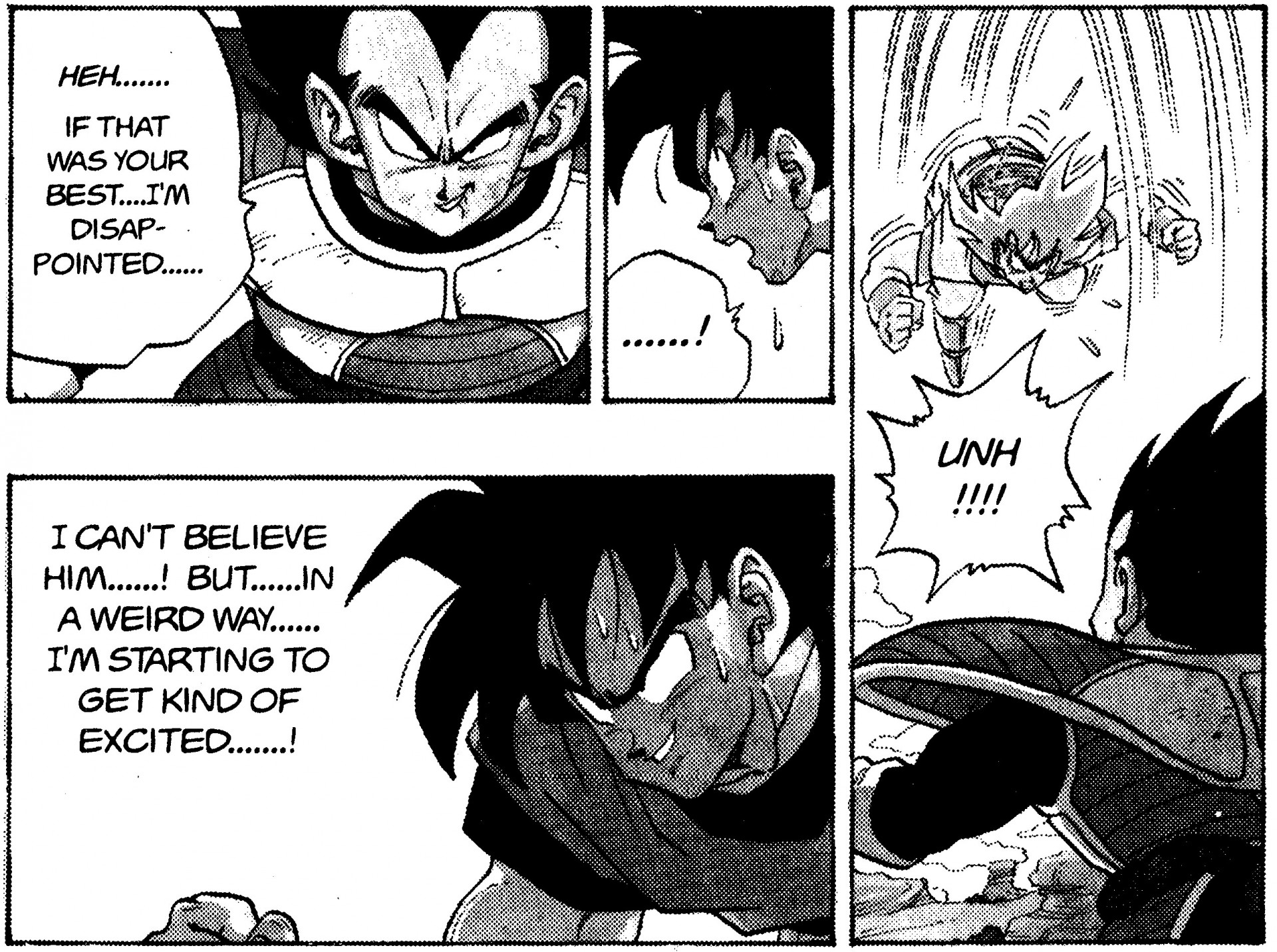
A "CHA-LA HEAD-CHA-LA" View on Life: You'll Be Fine If You Can Laugh About It
—I'd like to ask about writing the lyrics to "CHA-LA HEAD-CHA-LA". How did you get involved in lyric writing for Dragon Ball Z in the first place?
Mori: I was asked to write it by the production staff over at Columbia. I suppose they had heard the Kinnikuman opening I wrote and knew of the methods and approaches I use when writing anime music.
Come to think of it, this site had an interview with Hironobu Kageyama not too long ago. In it, I think he said that during the production that he recorded the demo for "CHA-LA HEAD-CHA-LA". I remember that time well, too.
At that time, Kageyama recorded a full version with an American rock style using his own band. But in the end, Kenji Yamamoto arranged the song Chiho Kiyooka had created to give "CHA-LA HEAD-CHA-LA" that innovative rock sound.
Though I called it rock, it's not the easy-to-listen-to sound of Kayokyoku. There are complex chords that are impossible to play with just one guitar. I sensed the prog vibe there, and it brought out my own rock sensibilities.
Even though I had written music for anime before, I had the sense that "CHA-LA HEAD-CHA-LA would be something special, a new turning point for me.
—It may be strange to ask at this point, but what does "CHA-LA HEAD-CHA-LA" mean?
Mori: The first "CHA-LA" comes from the Japanese "chara ni suru", meaning something like "to pretend nothing happened". "HEAD-CHA-LA" comes from the Japanese "hecchara", which means "It's OK".
A lot of things might have happened in my life up until this point, but once I reset myself it all becomes OK and I'm ready to give things another shot. I tried to write lyrics that expressed that feeling while still rhyming.
A lot of people say that emptying your head of thoughts makes you empty inside, but actually it's the opposite. It's a sort of punk attitude that means you can shake it off and empty your mind. It also means that no matter what happens, you're undefeatable.
—Oh, so the "HEAD" in "HEAD-CHA-LA" comes from that idea that you can take on anything now that your head has been emptied out?
Mori: That's right! That's why we decided to write it as "HEAD-CHA-LA".
So many things can happen in a person's life. There are happy times, hard times, and times where you just have to endure the pain and keep going. But, for just a moment, try pretending that nothing's wrong and act like everything is fine. Then, you can take on any kind of enemy that might come your way. If you stop yourself from getting caught up in things and clear your mind, you might even discover new dreams to strive towards. After all, an empty mind has more room where you can fit those dreams.
I wrote "CHA-LA HEAD-CHA-LA" with all that in mind.
I Want to Be One of a Kind. By Believing in the "Power of Words", My Lyrics Will Surely Reach Someone
—Since writing "CHA-LA HEAD-CHA-LA" you've penned quite a few song lyrics for Dragon Ball. How do you feel about your work in the Dragon Ball series?
Mori: If my lyrics can empower someone, I feel like I've accomplished my goal.
For example, in the "WE GOTTA POWER" opening theme song that was used later on in Dragon Ball Z, I wanted the lyrics to show Dragon Ball fans that when you've invested effort into something now, that can really empower you once you've grown up. I thought about how I wanted to convey that kind of message from Goku as I wrote those lyrics.
Many years after "WE GOTTA POWER" was released, I met a dancer who said that they were inspired by me and my work. They told me, "I always loved 'WE GOTTA POWER', and just like the song says, I worked hard at dancing and made it to the stage. And thanks to all that, I got a chance to meet you!" I was really moved by that. The message I wanted to send with my lyrics had reached that person, and that helped fuel their drive to become a professional dancer.
I really got a chance to meet a fan who really made it, and that helped me feel the joy in continuing to work as a lyricist.
—Even just talking to you, I can feel the positive energy you exude. How does this ability to spread positivity through words come about?
Mori: There are so many great songs out there, and so many great lyricists, too. Using such a conspicuous name like "Yukinojo," I was really hoping to convey that "this guy is different from the rest". It's not that I want to be number one. It's that I want to be one of a kind. I think that energy comes across in the lyrics I write.
I've lived long enough to see that who's number one changes with the times. But, if you really become one of a kind, your value as a musician doesn't disappear so easily.
Thankfully, I'm still able to work as an artist even though this is my 47th year in the industry. I am truly grateful to all the artists, animation teams, and theater companies who've worked with me over the years. I am optimistic that I will be able to continue being one of a kind for many years to come.
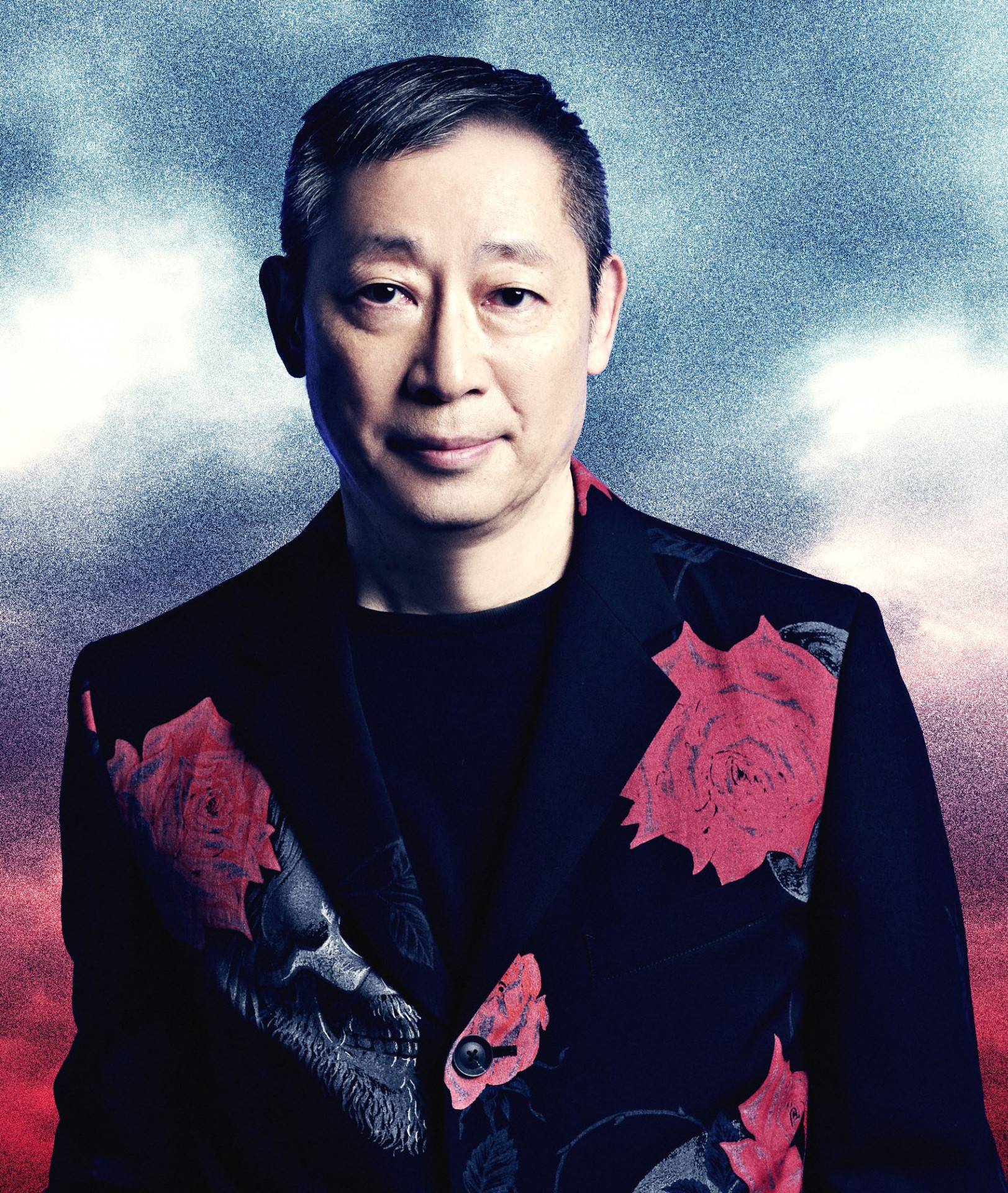
Yukinojo Mori
Born in January 1954. Began performing original songs in college while working as a guest singer for the progressive rock band, Yonin Bayashi. Made his debut as a lyricist and composer in 1976. Has created some of the greatest hits in pop and anime music, and since the 1990s, has worked as a cutting-edge lyricist with rock artists such as Tomoyasu Hotei, hide, and Kyosuke Himuro. Has released over 2,500 songs to date. In 2006, in honor of his 30th anniversary as a lyricist, many artists including Porno Graffitti, Kazuyoshi Saito, Yukihiro Takahashi, and more contributed to a tribute album entitled, "Words of Yukinojo". In 2016, in honor of his 40th anniversary, a 9-disc, 173 song collection entitled "The Encyclopedia of Yukinojo Mori" was released.
Interviewer: Yoshiya Minamino
Writer: Shinsuke Tada
Photographer: Shinsuke Yasui
This site includes machine-translated texts. Please be aware that you might find some unusual expressions that are difficult to understand.
Post
Confirm Post
Post the above comment?
Reply
Confirm Reply
Post the above comment?
Are you sure you want to delete this comment?
Report successful
Post Unsuccessful
This user will be muted.
You will be unable to see comments from muted users in the comments area.
*To unmute users, navigate to the "Comments" area on MY PAGE.
Reply
Confirm Reply
Post the above comment?
Edit
Post
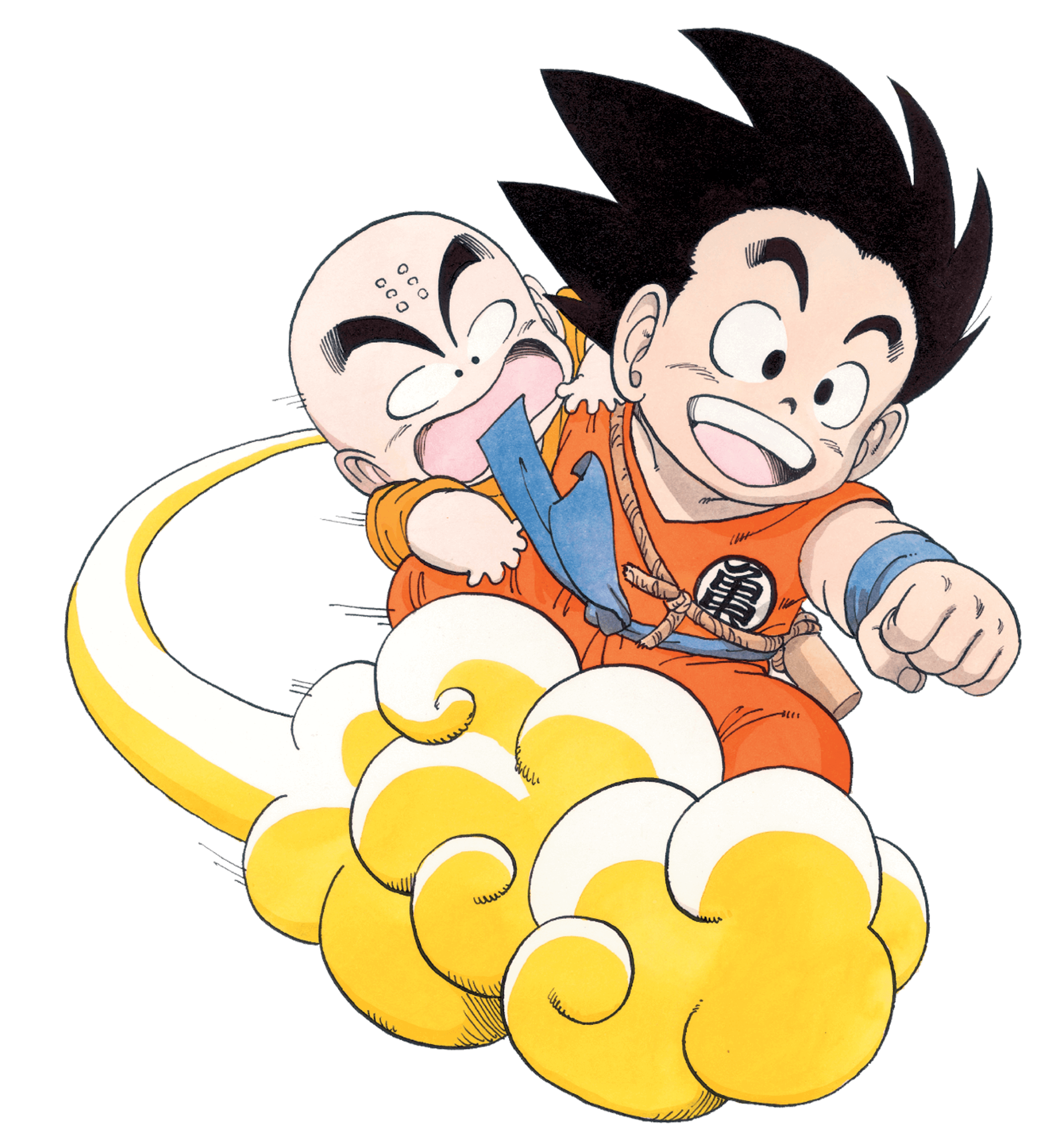

Post
Confirm Post
Post the above comment?
Edit
Post